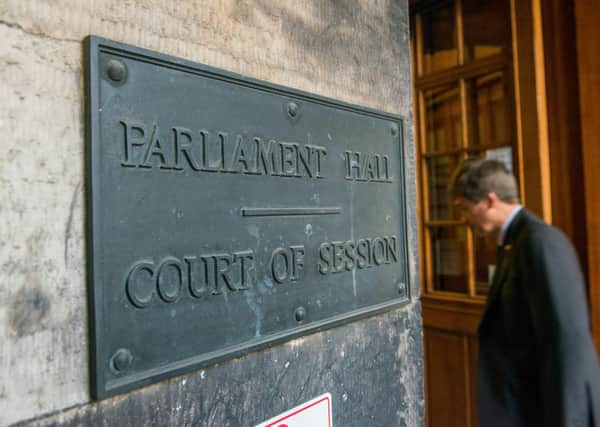Court system in Scotland must ‘catch up’ with England


Non-urgent disputes have continued to be heard down south thanks to greater use of video conferencing facilities and online sharing of case files, but advocates have warned the civil system north of the Border has almost ground to a halt in recent weeks as the country battles the coronavirus outbreak.
The Scottish Courts and Tribunals Service (SCTS) said yesterday it was “keen to look at how business can be advanced through paper submissions, the creation of digital bundles and the use of remote telephone conferencing”.
Advertisement
Hide AdAdvertisement
Hide AdCivil business in the Sheriff Courts is currently limited to urgent and necessary cases during the lockdown period, but the SCTS said it would announce later this week whether priority areas in the Outer House of the Court of Session could restart using video conferencing facilities.
Eoghainn MacLean, a leading commercial litigator based in Glasgow, told The Scotsman said that greater resources were required to ensure the wheels of justice could continue to turn during lockdown.
“There is a concern among advocates and solicitors in Scotland that access to justice is becoming a mirage,” he said.
“The legal profession, working with the courts, needs to work to ensure hearings can be done remotely - whether by telephone or video conferencing.
“Courts exist to resole disputes.”
He continued: “There is enthusiasm to catch up with what’s going on in England.
“The position here, since March 17, is that justice outside of the urgent has stalled.”
Roddy Dunlop QC, vice-dean of the Faculty of Advocates, last week wrote to justice secretary Humza Yousaf to urge him to reconsider the “mothballing” of civil business, amid fears that the financial futures of some law firms was being jeopardised.
“The prevailing mothballing approach is putting the financial futures of firms of solicitors and members of Faculty at real risk,” he said.
Advertisement
Hide AdAdvertisement
Hide Ad“In Scotland, the stated position of SCTS is that all non-urgent business is stalled. In England and Wales, the express position is quite to the contrary: namely that they are putting in place arrangements to continue as many hearings as possible remotely.”
In a statement yesterday, SCTS chief executive Eric McQueen said: “The Faculty of Advocates and the Law Society are rightly both challenging and collaborative in helping to find solutions.
“The measures we are putting in place this week are a big step forward, however, while we remain in lock down, any steps must be proportionate to the requirement to protect public health.
“My priorities remain protecting our staff, the judiciary and wider courts and tribunal users, while maintaining public confidence that the essential justice services we are responsible for can continue.”
A Scottish Government spokesperson said: The operation of the courts is a matter for the independent SCTS, who have our full support as they deal with the unique operational challenges and social impacts of Covid-19.
“While the priority has to be the continuation of essential business, we are encouraging the efforts to restart more routine business where it can be done safely.”